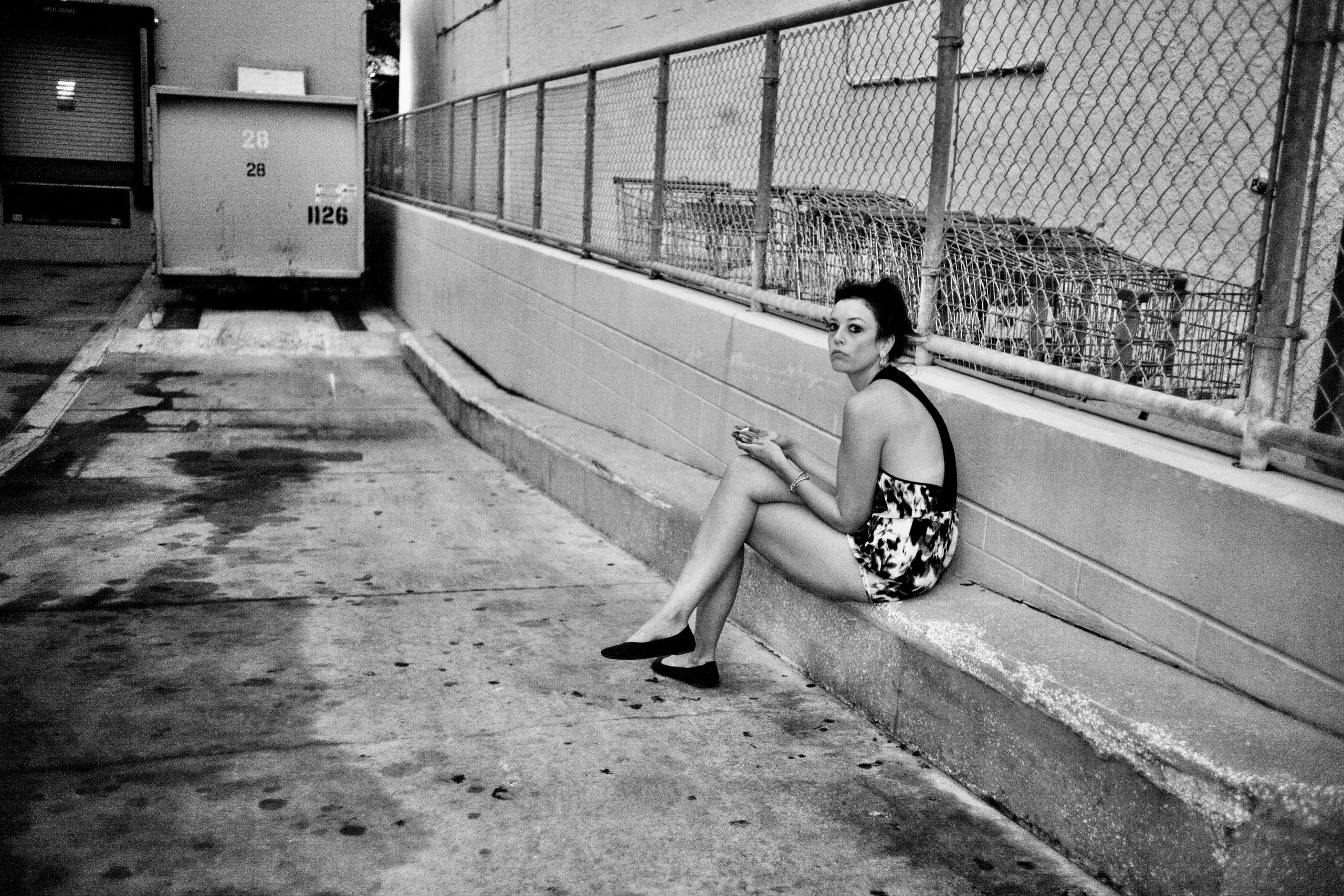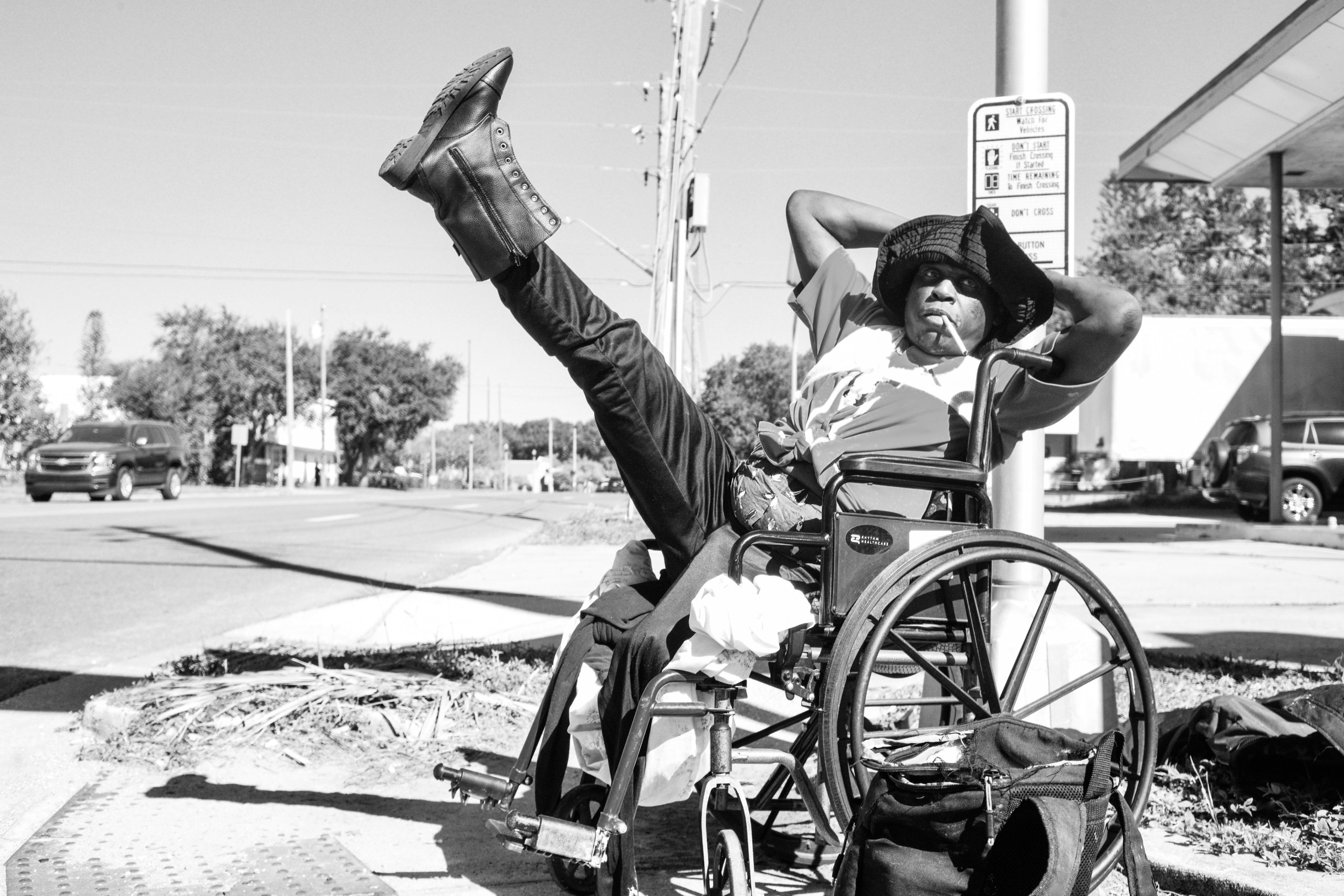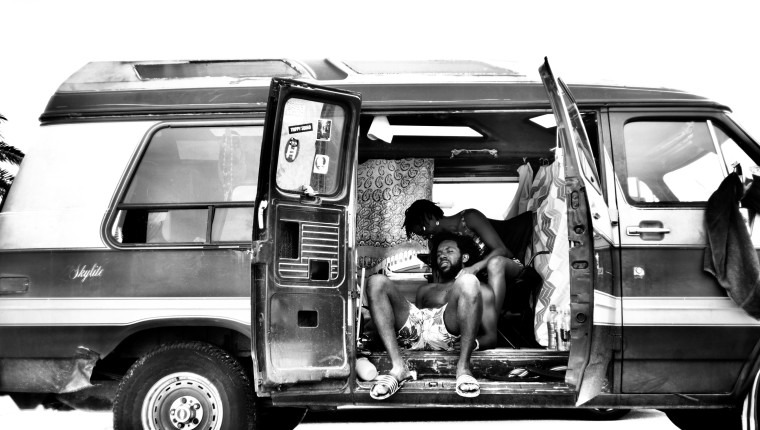My camera talks too much. It goes on and on and on, all up in my face, until I have offered it something it deems worthy of photography. Opinionated and technically muscular, it will not allow me to bore it with prepared smiles and peace signs. If you wave of stick your tongue out, it’s gone. When I am lost, intuitively offtrack, it guides me toward the undiscovered. When I shy away from a difficult scene of public interaction, it calls me out. My camera constantly reminds me, “Photography is percussive.” Ranging from nice to nasty, my camera is quite a connoisseur of persuasive language or “lens-guage,” referring to its brand of sight speech. To get me to get the shot, it will say almost anything. A master of mimicry, it will start a conversation with a stranger and then go silent leaving me to finish the awkward exchange and take the awkward photograph. I am not above arguing with my camera because that, too, attracts an odd form of attention that can often lead to an unusual look, gesture or burst of energy from a subject. Sounds like a psychological game, I know, or just a prompt for a piece of creative writing, I know, but it’s an intelligently designed truth: my camera talks to me. It is nearly impossible to ignore it. Many of my, no, our, photographs are the result of an ideological conflict.
Held up to my ear not around my neck like a medallion with an eye, it is never as simple as, “May I take your picture?” The photographer who has to ask to make a photograph has already lost the central energy and purpose of the birth of the image. A photograph must be partially unexpected. However, a dying image, one whose creation contains betrayal, is not necessarily without pictorial integrity especially when some aspect of unexpected performance is involved as is the case of the mock hitchhiker’s kick in “Pose-Struck by Performance.” Someone asked, “Is that man wearing a bra on the outside of his clothing?” “I did not notice nor did I assume it was a man.” Either way, I had to ask if I could take the photograph. Camera said, “Don’t worry,” but I was ready to surrender to making an image without any surprise in it and then, just like that: a kick! Was he trying to get rid of me, KAPOW, or reveal another moment of vulnerability that my camera had caught but I had missed?

Regarding “Together off the Grid, Together on the Grind,” I rode by the couple in the van on my bicycle. 30 feet later, in my mother’s voice, the camera got real-familiar with me, “Boy, if you don’t turn around and get me that shot…!” Circling back, I began shooting them before I met them, before asking if I could photograph them, knowing that I could get cursed out. After they noticed me, I explained that I was out working on my craft and they were kind about the intrusion and allowed me to continue shooting, closer and closer, till I was practically in the van. That day, thanks to them, I made “The Double Negritude of Attitude,” one of the best images my camera has ever bossed me into taking. It feels like a reward for listening not for knowing how to take a picture. I prefer the joys of the process more so than seeing an actual print. “Just because it’s published, it doesn’t mean you have to read it or read from it” is the most wickedly profound thing my camera has ever said to me.
Leaving UPS on an overcast day, I could say I don’t know where the mechanical whisper that suggested I walk around the corner into the Publix parking lot came from, but I do. It was my camera, weighty on a strap and unwilling to go home and sit at the computer screen where a roll of stanzas and paragraphs in light blue folders were waiting. It was my camera that said, “There’s something you should see and something you won’t know you’ve seen until you’ve seen the actual picture.” My camera, the remote controller of me. On, off, play, pause, fast forward. Camera says, “Look to the left.” Camera says, “Look to the right.” Camera sings, “There’s a shadow shaped like a butter knife near your foot.” “Not another palm tree,” camera shakes my head. There, a woman, her back to me, a bit Nouvelle Vague, a bit Indy Princess fallen on hard times. Easy to see the vacant crucifix in chain link, but not the grocery carts pushed into one another like a death row of silver sheep, metal crates waiting to be pushed by walking souls. O so holy this was, I hesitated. “Take it,” the camera said, “Give it to me!” Hearing, she looked at me. Those eyes, those eyes, bang bang! My camera talks too much. Good thing it doesn’t write.




